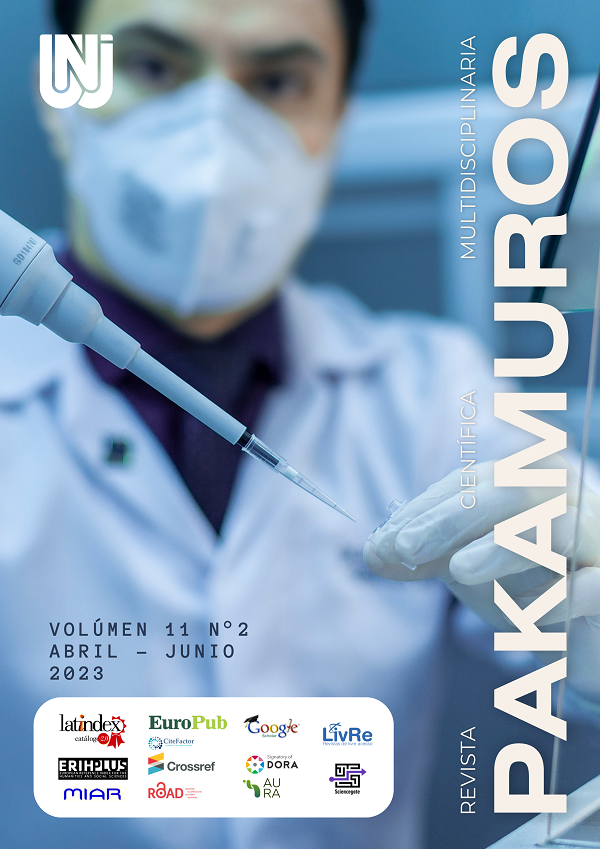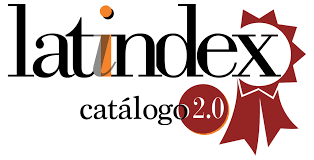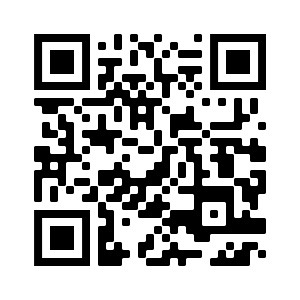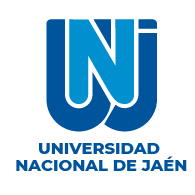Estudio de caso sobre el liderazgo pedagógico en escuelas públicas peruanas
DOI:
https://doi.org/10.37787/8x2nch74Palabras clave:
escuela pública peruana, liderazgo instruccional, liderazgo pedagógico, pandemia, prácticas de liderazgoResumen
El objetivo de la investigación fue reconocer y caracterizar las prácticas de liderazgo de tres directores de escuelas públicas peruanas durante la pandemia. La investigación tuvo un enfoque cualitativo, diseño no experimental y utilizó el método de estudio de casos. Empleó un muestreo no probabilístico intencional para la selección de participantes, entrevista semiestructurada para la recolección de datos; y el análisis temático cualitativo de los datos recogidos. Se concluyó que, durante la pandemia, los líderes participantes demostraron mayor apropiación de ciertas funciones del liderazgo pedagógico, tales como: enmarcar la misión de la escuela, mantener una alta visibilidad y promover el desarrollo profesional; sin embargo, tuvieron serias dificultades en otras funciones, tales como: comunicar los objetivos de la escuela, coordinar el currículo, monitorear el progreso de los estudiantes, proteger el tiempo de enseñanza, y proveer incentivos para los estudiantes y docentes.
Referencias
Alanoglu, M. (2022). The role of instructional leadership in increasing teacher self-efficacy: a meta-analytic review. Asia Pacific Education Review, 23(2), 233–244. https://doi.org/10.1007/s12564-021-09726-5
Aldaz, A., Rabasco, M., & Ullauri, J. (2023). Habilidades sociales y liderazgo pedagógico en directores de instituciones públicas: una revisión de la literatura en los últimos 5 años. Revista Científica FIPCAEC (Fomento de La Investigación y Publicación Científico-Técnica Multidisciplinaria), 8(2), 228–246. https://www.fipcaec.com/index.php/fipcaec/article/view/823
Anselmus-Dami, Z., Budi-Wiyono, B., Imron, A., Burhanuddin, B., Supriyanto, A., & Daliman, M. (2022). Principal self-efficacy for instructional leadership in the perspective of principal strengthening training: work engagement, job satisfaction and motivation to leave. Cogent Education, 9(1), 1–18. https://doi.org/10.1080/2331186X.2022.2064407
Antonio-Martel, M. G., & Herrera-Álvarez, A. M. (2019). El liderazgo pedagógico del director desde la mirada de los docentes. Revista Gestión I+D, 4(2), 31–46. https://dialnet.unirioja.es/servlet/articulo?codigo=7468001
Atkins, L., & Wallace, S. (2012). Interviewing in Educational Research. In Qualitative research in education (pp. 85–106). SAGE Publications Ltd.
Azorín, C. (2020). Beyond COVID-19 supernova. Is another education coming? Journal of Professional Capital and Community, 5(3/4), 381–390. https://doi.org/10.1108/JPCC-05-2020-0019
Azorín, C., & Fullan, M. (2022). Leading new, deeper forms of collaborative cultures: Questions and pathways. Journal of Educational Change, 23(1), 131–143. https://doi.org/10.1007/s10833-021-09448-w
Berkovich, I., & Hassan, T. (2022). Principals’ digital instructional leadership during the pandemic: Impact on teachers’ intrinsic motivation and students’ learning. Educational Management Administration & Leadership, 1–21. https://doi.org/10.1177/17411432221113411
Biesta, G. (2017). Educational leadership for what? An educational examination. The Wiley International Handbook of Educational Leadership, 15–27. https://doi.org/10.1002/9781118956717.ch1
Biesta, G. (2020a). Risking Ourselves in Education: Qualification, Socialization, and Subjectification Revisited. Educational Theory, 70(1), 89–104. https://doi.org/10.1111/edth.12411
Biesta, G. (2020b). What constitutes the good of education? Reflections on the possibility of educational critique. Educational Philosophy and Theory, 52(10), 1023–1027. https://doi.org/10.1080/00131857.2020.1723468
Broughton, S. (2019). Case Study Research. In H. Van den Bulck, M. Puppis, K. Donders, & V. A. L. (Eds.), The Palgrave Handbook of Methods for Media Policy Research. Palgrave Macmillan, Cham. https://doi-org.ezproxy.library.uq.edu.au/10.1007/978-3-030-16065-4_4
Casas-Mallma, A. C. (2019). Liderazgo pedagógico, nuevas perspectivas para el desempeño docente. Investigación Valdizana, 13(1), 51–60. https://doi.org/10.33554/riv.13.1.171
Chávez, L. M., Castro, M. C., Urquizo, J. A., & Majo, H. R. (2022). Liderazgo pedagógico aplicado a la práctica docente en tiempos de crisis pandémica en Perú. Revista de Ciencias Sociales, 28(Especial 5), 124–134.
Chuquihuanca-Yacsahuanca, N., Fernández-Mantilla, M. M., Gonzáles-Sánchez, M. del C., Chunga-Silva, L. J., Girón-Valenzuela, R. A., Estrada-Gaibor, S. V., & Campoverde-Nieves, G. R. (2021). Liderazgo pedagógico directivo y calidad educativa en instituciones de educación básica regular del Perú. Revista Latinoamericana de Difusión Científica, 4(6), 181–191. https://doi.org/10.38186/difcie.46.11
Cisneros, G., & Ledesma, M. (2021). Liderazgo pedagógico directivo en un contexto de trabajo remoto por la emergencia sanitaria, COVID-19. Revista de Investigación Científica y Tecnológica “Llamkasun,” 2(3), 10–27. https://llamkasun.unat.edu.pe/index.php/revista/article/view/52/58
Coleman, M. (2020). Leading the change to establish a whole-school nurturing culture. Emotional and Behavioural Difficulties, 25(1), 68–79. https://doi.org/10.1080/13632752.2019.1682244
Contreras, T. S. (2016). Liderazgo pedagógico, liderazgo docente y su papel en la mejora de la escuela: una aproximación teórica. Propósitos y Representaciones, 4(2). https://doi.org/10.20511/pyr2016.v4n2.123
D’Aquino, M., & Barrón, V. (2020). Proyecto y Metodología de la investigación. Editorial Maipue.
Day, C., Gu, Q., & Sammons, P. (2016). The Impact of Leadership on Student Outcomes: How Successful School Leaders Use Transformational and Instructional Strategies to Make a Difference. Educational Administration Quarterly, 52(2), 221–258. https://doi.org/10.1177/0013161X15616863
Dutta, V., & Sahney, S. (2022). Relation of principal instructional leadership, school climate, teacher job performance, and student achievement. Journal of Educational Administration, 60(2), 148–166. https://doi.org/10.1108/JEA-01-2021-0010
Flores, F., García, C., Condori, Y., & Pacho, G. (2022). Liderazgo directivo para la educación virtual en la institución educativa de Perú. Encuentros. Revista de Ciencias Humanas, Teoría Social y Pensamiento Crítico, 17, 228–237. https://doi.org/http://doi.org/10.5281/zenodo.7527660
Fouda, A. Y. (2020). Introducing the Zoom interview: tips for job hunting during the coronavirus pandemic. Nature, 582(7811), 299–300. https://doi.org/10.1038/d41586-020-01618-9
Fullan, M. (2001). Leading in a Culture of Change. John Wiley & Sons, Incorporated.
Fullan, M. (2020). The nature of leadership is changing. European Journal of Education, 55(2), 139–142. https://doi.org/10.1111/ejed.12388
Graham, L. (2021). Leading in times of uncertainty. Hydrocarbon Processing, April 2021, 20–21.
Greenfield, T., & Greener, S. (2016). Research Methods for Posgraduates (Third edition). Wiley. https://ebookcentral.proquest.com/lib/biblioucv/reader.action?docID=4644084&query=research+methods
Guadalupe, C., León, J., Rodríguez, J., & Vargas, S. (2017). Capítulo 3: Docentes y directores de la Educación Básica Regular. In Estado de la Educación en el Perú (pp. 103–144). Grupo de Análisis para el Desarrollo (GRADE). https://doi.org/10.15381/rsoc.v0i27.18979
Hallinger, P. (2003). Leading educational change: Reflections on the practice of instructional and transformational leadership. Cambridge Journal of Education, 33(3), 329–351. https://doi.org/10.1080/0305764032000122005
Hallinger, P. (2009). Leadership for 21st Century Schools: From Instructional Leadership to Leadership for Learning. In Chair Professors Public Lecture Series of The Hong Kong Institute of Education.
Hallinger, P. (2011). Leadership for learning: lessons from 40 years of empirical research. Journal of Educational Administration, 49(2), 125–142. https://doi.org/10.1108/09578231111116699
Hallinger, P. (2020). Science mapping the knowledge base on educational leadership and management from the emerging regions of Asia, Africa, and Latin America, 1965–2018. Educational Management Administration and Leadership, 48(2), 209–230. https://doi.org/10.1177/1741143218822772
Hallinger, P., & Murphy, J. (1985). Assessing the Instructional Management Behavior of Principals. The Elementary School Journal, 86(2), 217–247. https://doi.org/10.1086/461445
Hallinger, P., Wang, W. C., Chen, C. W., & Li, D. (2015). Assessing instructional leadership with the principal instructional management rating scale. Assessing Instructional Leadership with the Principal Instructional Management Rating Scale, 1985, 1–204. https://doi.org/10.1007/978-3-319-15533-3
Hammersley, M. (2020). Transcription of speech. In M. R. M. Ward & S. Delamont (Eds.), Handbook of qualitative education research (pp. 374–379). ProQuest Ebook Central. https://doi.org/https://doi.org/10.4337/9781788977159.00044
Hammett, P. (2020). Leading in times of fear and uncertainty. Agri Marketing, 58(3), 14.
Harris, A. (2008). Distributed leadership: according to the evidence. Journal of Educational Administration, 46(2), 172–188. https://doi.org/10.1108/09578230810863253
Harris, A., Azorín, C., & Jones, M. (2021). Network leadership: a new educational imperative? International Journal of Leadership in Education, 00(00), 1–17. https://doi.org/10.1080/13603124.2021.1919320
Harris, A., & Jones, M. (2020). COVID-19 – School leadership in disruptive times. School Leadership & Management, 40(4), 243–247. https://doi.org/10.1080/13632434.2020.1811479
Hernández-Sampieri, R., & Mendoza-Torres, C. (2018). Metodología de la Investigación. Las rutas cuantitativas, cualitativas y mixtas. McGraw-Hill Education.
Holguin, J., Villena, M., Soto, C., & Panduro, J. (2020). Competencias digitales, liderazgo distribuido y resiliencia docente en contextos de pandemia. Revista Venezolana de Gerencia, 25(4), 38–53. https://www.produccioncientificaluz.org/index.php/rvg/article/view/35175
Imad, M. (2020). 10 Leadership Strategies in Times of Uncertainty. Women in Higher Education, 29(5), 9–15. https://doi.org/10.1002/whe.20845
INEI. (2020). Acceso de los hogares a las Tecnologías de Información y Comunicación (TIC). In Estadísticas de las Tecnologías de Información y Comunicación en los Hogares. https://www.inei.gob.pe/media/MenuRecursivo/boletines/04-informe-tecnico-tic-iii-trimestre2020.pdf
Izquierdo, M. (2015). Informantes y muestreo en investigación cualitativa. Informantes y Muestreo En Investigación Cualitativa, 17(30), 1148–1150. https://doi.org/10.33132/01248146.65
Kafa, A. (2021). Advancing School Leadership in Times of Uncertainty: The Case of the Global Pandemic Crisis. Leading & Managing, 27(1), 37–50.
Kilag, O. K. T., & Sasan, J. M. (2023). Unpacking the Role of Instructional Leadership in Teacher Professional Development. Advanced Qualitative Research, 1(1), 63–73. https://doi.org/10.31098/aqr.v1i1.1380
Lambert, L. (2005). What Does Leadership Mean? Journal of Staff Development, 26(2).
Leithwood, K., & Sun, J. (2012). The Nature and Effects of Transformational School Leadership. Educational Administration Quarterly, 48(3), 387–423. https://doi.org/10.1177/0013161X11436268
Liu, Y., Li, L., & Huang, C. (2022). To what extent is shared instructional leadership related to teacher self-efficacy and student academic performance in China? School Effectiveness and School Improvement, 33(3), 381–402. https://doi.org/10.1080/09243453.2022.2029746
Marvasti, A., & Tanner, S. (2020). Interviews with individuals. In S. Ward, M. R. M., & Delamont (Ed.), Handbook of qualitative education research (pp. 329–337). ProQuest Ebook Central. https://doi.org/https://doi.org/10.4337/9781788977159.00039
McKnight, L., & Whitburn, B. (2020). Seven reasons to question the hegemony of Visible Learning. Discourse: Studies in the Cultural Politics of Education, 41(1), 32–44. https://doi.org/10.1080/01596306.2018.1480474
MINEDU. (2014). Marco de Buen Desempeño del Directivo. http://www.minedu.gob.pe/n/xtras/marco_buen_desempeno_directivo.pdf
Nawab, A., & Noor, T. (2023). “My supervisors first check school cleanliness”: Factors inhibiting instructional leadership practices in Northern Sindh, Pakistan. Educational Management Administration & Leadership, 174114322311775. https://doi.org/10.1177/17411432231177532
Nurabadi, A., Suhariadi, F., Mardiyanta, A., Triwiyanto, T., & Adha, M. A. (2022). Digital principal instructional leadership in the new normal era. International Journal of Evaluation and Research in Education (IJERE), 11(3), 1090–1098. https://doi.org/10.11591/ijere.v11i3.22483
Otzen, T., & Manterola, C. (2017). Técnicas de Muestreo sobre una Población a Estudio. International Journal of Morphology, 35(1), 227–232. https://doi.org/10.4067/S0717-95022017000100037
Pachay, M., & Rodríguez, M. (2021). La deserción escolar: Una perspectiva compleja en tiempos de pandemia. Polo Del Conocimiento, 6(1), 1–26. https://doi.org/10.23857/pc.v6i1.2129
Pashiardis, P., & Brauckmann-Sajkiewicz, S. (2022). Unraveling the business of educational leaders in times of uncertainty. Educational Management Administration & Leadership, 50(2), 307–324. https://doi.org/10.1177/17411432211055327
Querevalú-Pazos, M. (2022). Directores como Líderes Pedagógicos: Estudio de caso sobre las prácticas de Liderazgo en una Escuela Pública Peruana. Revista Científica Searching de Ciencias Humanas y Sociales, 3(2), 15–32. https://doi.org/10.46363/searching.v3i2.1
Robinson, V. M. J., Lloyd, C. A., & Rowe, K. J. (2008). The impact of leadership on student outcomes: An analysis of the differential effects of leadership types. Educational Administration Quarterly, 44(5), 635–674. https://doi.org/10.1177/0013161X08321509
Robson, J. (2020). Online methods in educational research. In S. Ward, M. R. M., Delamont (Ed.), Handbook of qualitative education research (pp. 349–359). ProQuest Ebook Central.
Sahlberg, P. (2012). Global Educational Reform Movement is here! https://pasisahlberg.com/global-educational-reform-movement-is-here/
Sahlberg, P. (2020). Will the pandemic change schools? Journal of Professional Capital and Community, 5(3/4), 359–365. https://doi.org/10.1108/JPCC-05-2020-0026
Shaked, H. (2022). Instructional leadership during the COVID-19 pandemic: The case of Israel. Educational Management Administration & Leadership. https://doi.org/10.1177/17411432221102521
Shaked, H. (2023). How organizational management supports instructional leadership. Journal of Educational Administration, 61(1), 60–77. https://doi.org/10.1108/JEA-07-2022-0101
Simons, H. (2009). Case study research in practice. SAGE Publications Ltd.
Smith, M. (2018). Case study research strategy. In Research methods in sport (pp. 145–159). SAGE. Learning Matters. https://www-doi-org.ezproxy.library.uq.edu.au/10.4135/9781526433992.n8
Snook, I., Clark, J., Harker, R., O’Neill, A. M., & O’Neill, J. (2010). Critic and conscience of society: A reply to John Hattie. New Zealand Journal of Educational Studies, 45(2), 93–98.
Stone-Johnson, C., & Miles Weiner, J. (2020). Principal professionalism in the time of COVID-19. Journal of Professional Capital and Community, 5(3/4), 367–374. https://doi.org/10.1108/JPCC-05-2020-0020
Swanborn, P. (2010). What data to collect? In Case study research (pp. 73–96). SAGE Publications.
Thornton, K. (2021). Leading through COVID-19: New Zealand secondary principals describe their reality. Educational Management Administration & Leadership, 49(3), 393–409. https://doi.org/10.1177/1741143220985110
Tight, M. (2017). Case study research. In D. Wyse, N. Selwyn, E. Smith, & L. E. Suter (Eds.), The BERA/SAGE Handbook of Educational Research: Two Volume Set (pp. 376–394). SAGE Publications Ltd.
UNESCO. (2021). Un año de educación perturbada por la COVID-19: ¿Cómo está la situación? UNESCO.
Vásquez, M. R., Salazar, J. C., & Ortega, M. (2023). Liderazgo pedagógico del directivo: Una gestión centrada en la mejora de aprendizajes. Revista Conrado, 19(92), 18–27.
Vásquez-Villanueva, S., Vásquez-Campos, S. A., Vásquez-Villanueva, L., Carranza-Quevedo, M. F., Vásquez-Villanueva, C. A., & Terry-Ponte, O. F. (2021). Liderazgo pedagógico y el desempeño docente: la imagen de instituciones educativas privadas. Horizontes. Revista de Investigación En Ciencias de La Educación, 5(17), 178–194. https://doi.org/10.33996/revistahorizontes.v5i17.166
Volante, L., Schnepf, S., Jerrim, J., & Klinger, D. A. (2019). Socioeconomic Inequality and Student Outcomes. Cross-National Trends, Policies, and Practices (L. Volante, S. V. Schnepf, J. Jerrim, & D. A. Klinger, Eds.; Vol. 4). Springer Singapore. https://doi.org/10.1007/978-981-13-9863-6
Williamson, R., & Michigan, E. (2020). The Three Cs of Leading Change During Remote Learning: Culture, Communication, and Collaboration. Australian Educational Leader, 42(4), 12–15.
Descargas
Publicado
Declaración de disponibilidad de datos
Declaramos bajo juramento que ponemos a disposición del público los datos de la investigación para que puedan ser accedidos por los lectores/as.
Número
Sección
Licencia
Derechos de autor 2023 Revista Científica Pakamuros

Esta obra está bajo una licencia internacional Creative Commons Atribución-NoComercial 4.0.












